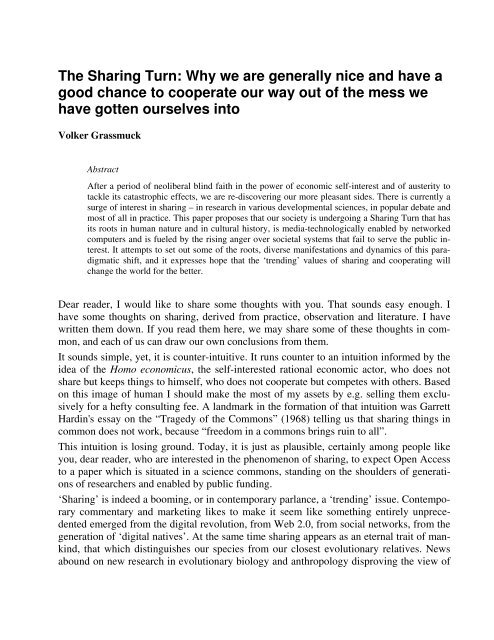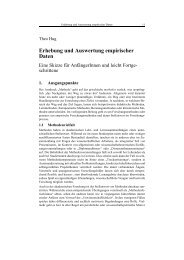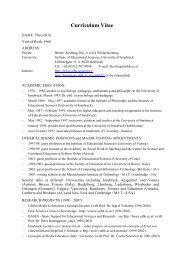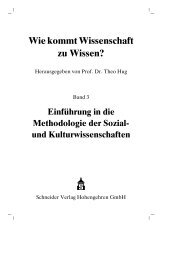Cultures and Ethics of Sharing - Universität Innsbruck
Cultures and Ethics of Sharing - Universität Innsbruck
Cultures and Ethics of Sharing - Universität Innsbruck
- Keine Tags gefunden...
Erfolgreiche ePaper selbst erstellen
Machen Sie aus Ihren PDF Publikationen ein blätterbares Flipbook mit unserer einzigartigen Google optimierten e-Paper Software.
The <strong>Sharing</strong> Turn: Why we are generally nice <strong>and</strong> have agood chance to cooperate our way out <strong>of</strong> the mess wehave gotten ourselves intoVolker GrassmuckAbstractAfter a period <strong>of</strong> neoliberal blind faith in the power <strong>of</strong> economic self-interest <strong>and</strong> <strong>of</strong> austerity totackle its catastrophic effects, we are re-discovering our more pleasant sides. There is currently asurge <strong>of</strong> interest in sharing – in research in various developmental sciences, in popular debate <strong>and</strong>most <strong>of</strong> all in practice. This paper proposes that our society is undergoing a <strong>Sharing</strong> Turn that hasits roots in human nature <strong>and</strong> in cultural history, is media-technologically enabled by networkedcomputers <strong>and</strong> is fueled by the rising anger over societal systems that fail to serve the public interest.It attempts to set out some <strong>of</strong> the roots, diverse manifestations <strong>and</strong> dynamics <strong>of</strong> this paradigmaticshift, <strong>and</strong> it expresses hope that the ‘trending’ values <strong>of</strong> sharing <strong>and</strong> cooperating willchange the world for the better.Dear reader, I would like to share some thoughts with you. That sounds easy enough. Ihave some thoughts on sharing, derived from practice, observation <strong>and</strong> literature. I havewritten them down. If you read them here, we may share some <strong>of</strong> these thoughts in common,<strong>and</strong> each <strong>of</strong> us can draw our own conclusions from them.It sounds simple, yet, it is counter-intuitive. It runs counter to an intuition informed by theidea <strong>of</strong> the Homo economicus, the self-interested rational economic actor, who does notshare but keeps things to himself, who does not cooperate but competes with others. Basedon this image <strong>of</strong> human I should make the most <strong>of</strong> my assets by e.g. selling them exclusivelyfor a hefty consulting fee. A l<strong>and</strong>mark in the formation <strong>of</strong> that intuition was GarrettHardin's essay on the “Tragedy <strong>of</strong> the Commons” (1968) telling us that sharing things incommon does not work, because “freedom in a commons brings ruin to all”.This intuition is losing ground. Today, it is just as plausible, certainly among people likeyou, dear reader, who are interested in the phenomenon <strong>of</strong> sharing, to expect Open Accessto a paper which is situated in a science commons, st<strong>and</strong>ing on the shoulders <strong>of</strong> generations<strong>of</strong> researchers <strong>and</strong> enabled by public funding.‘<strong>Sharing</strong>’ is indeed a booming, or in contemporary parlance, a ‘trending’ issue. Contemporarycommentary <strong>and</strong> marketing likes to make it seem like something entirely unprecedentedemerged from the digital revolution, from Web 2.0, from social networks, from thegeneration <strong>of</strong> ‘digital natives’. At the same time sharing appears as an eternal trait <strong>of</strong> mankind,that which distinguishes our species from our closest evolutionary relatives. Newsabound on new research in evolutionary biology <strong>and</strong> anthropology disproving the view <strong>of</strong>








